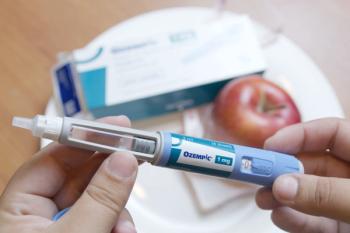
From verifying vaccination status to administering immunizations, pharmacists can mitigate the spread of various infectious diseases.

From verifying vaccination status to administering immunizations, pharmacists can mitigate the spread of various infectious diseases.

As shortages end, pharmacies that compound GLP-1s face lawsuits, stricter board oversight, and tougher FDA enforcement.

Pharmacists can help patients maintain muscle mass, meet their protein needs, and prevent nutritional deficiencies through evidence-based guidance that supports better overall health.

A collection of 4 major independent pharmacy groups filed an amicus brief urging Iowa representatives to shut down a recent challenge to proposed PBM legislation.

Balancing opioid use with compassion and clinical best practices ensures safe and patient-centered care, supporting pain management and addiction.

With uncertainty in dosing recommendations, researchers aim to assess the efficacy of pneumococcal conjugate vaccines for the pediatric population.

Nicole Pezzino, PharmD, BCACP, BC-ADM, CDCES, discusses why the underutilization of technology could be hurting pharmacy businesses.

Celebrate the vital role of pharmacists in health care this American Pharmacists Month.

Further, they found weight loss prior to 75-g oral glucose tolerance test was a preventive factor for both impaired glucose tolerance and diabetes.

Amgen launches AmgenNow, which is a new direct-to-patient program that will start with evolucumab.

As the sixth approval for roflumilast in less than 4 years, the cream is expected to impact the 1.8 million children who have reported atopic dermatitis.

Researchers conduct a pilot study that assesses clinical pharmacists’ interventions and management of chronic diseases for older adults living in senior housing facilities.

Prior to the government shutdown, the FDA approved a generic version of mifeprisone without a public announcement.

Significant patient reports show a lack of response to treatment for community-acquired pneumonia, leading researchers to investigate the use of corticosteroids.

Ashley Moose, PharmD, owner of Moose Pharmacy of Monroe and director of network development at CPESN USA, capped off this fall’s event and discussed where to access sessions on demand.

This is the first Bruton tyrosine kinase inhibitor FDA approved for chronic spontaneous urticaria.

This month, Drug Topics® explores a new avenue of pharmacy each week, including AI technology, student education, innovative community services, and the expansion of clinical care.

Amid ongoing approaches to lower drug prices for US patients, like the Most-Favored-Nation policy, this is another partnership the Trump Administration believes will improve access challenges.

In part 2 of our interview, Lissette Logan, PharmD, and Danielle Weaver, PharmD, discuss the evolution of contraceptive services and how pharmacy is supporting rural communities and their patients.

In part 3 of our interview with Bill Wolfe, COO of WriteWise, he discusses the technology backing his team’s approach to forever changing how pharmacy benefits are distributed in the US.

Since 2016, the rate of gabapentin prescribing slowed but is still increasing, especially for women and older adults.

This marks the first and only IL-23 approval for these indications in pediatric populations.

Amid recent measles outbreaks in Texas and Ohio, researchers aim to understand MMR vaccine coverage following postelimination outbreaks throughout the country.

Based on a new report detailing the current trends in PBM types from the Big 3 to new grassroots organizations, Bill Wolfe, COO of WriteWise, discusses a shifting pharmacy benefits landscape.

Researchers address impacts of the Inflation Reduction Act on the access, cost, and coverage of glucagon-like peptide-1 medications for patients with diabetes.

In the final part of our interview with Mark Garofoli, PharmD, BCGP, CPE, CTTS, he discusses what the future will hold regarding clinical decision-making following the reported acetaminophen-autism link.

Pharmacists are on the front line for patients looking to self-manage their menstrual pain, making their role invaluable in women’s health.

Pain medication expert Mark Garofoli, PharmD, MBA, BCGP, CPE, CTTS, joined Drug Topics to explore the referenced studies in the Trump Administration’s push to link acetaminophen use with autism.

Amid the prominent use of vaping in today’s society, researchers assess how it impacts pregnancy outcomes, including preterm birth, low birth weight, and small for gestational age.

The study results highlight the importance of pneumococcal vaccination for patients with chronic respiratory diseases, particularly chronic obstructive pulmonary disease.